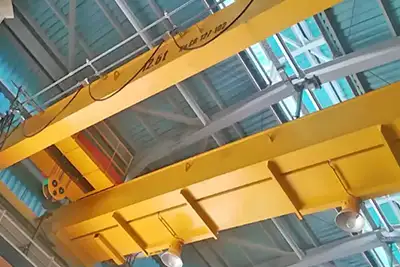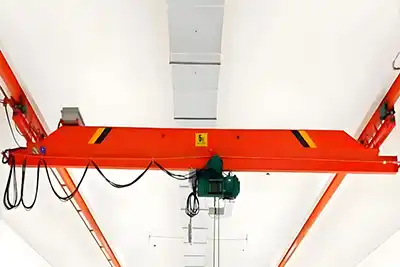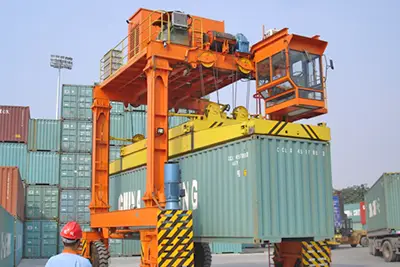How Smart Buyers Maximize Value with Crane Supplier Partnerships
How Savvy Procurement Managers Leverage Overhead Crane Supplier Partnerships for Better Service and Cost Savings
Introduction
Procurement managers play a crucial role when it comes to sourcing cranes, especially overhead cranes, for industries like steel mills, construction, and manufacturing plants. They are the ones responsible for making sure the right equipment is available at the right time, with the right specifications to keep operations running smoothly.
But it’s not just about finding a supplier for a one-time purchase. Building a long-term relationship with a reliable crane supplier can make a huge difference. Why? Because when you establish that relationship, you unlock numerous benefits that go beyond a simple transaction.
Why Long-Term Relationships Matter
When you partner with a crane supplier for the long haul, it’s a win-win for both sides. Here’s why it matters:
- Better Service: Long-term partners get better customer support because the supplier understands your needs and challenges. Instead of being just another customer, you’ll have access to a dedicated team who’s invested in your success.
- Negotiated Discounts: With ongoing business, suppliers are more likely to offer volume discounts, favorable pricing, and loyalty benefits. This could help lower the total cost of ownership for your cranes.
- Faster Response Times: When you need something quickly—whether it's a replacement part or a repair—the supplier will prioritize your request, minimizing downtime in your operations.
- Custom Support: Over time, your supplier gets to know your specific needs. They can offer you tailored solutions, upgrades, or even design changes to meet your evolving requirements.
By fostering a long-term relationship, you can build a partnership based on trust, reliability, and mutual understanding, which can lead to significant operational savings and improvements.
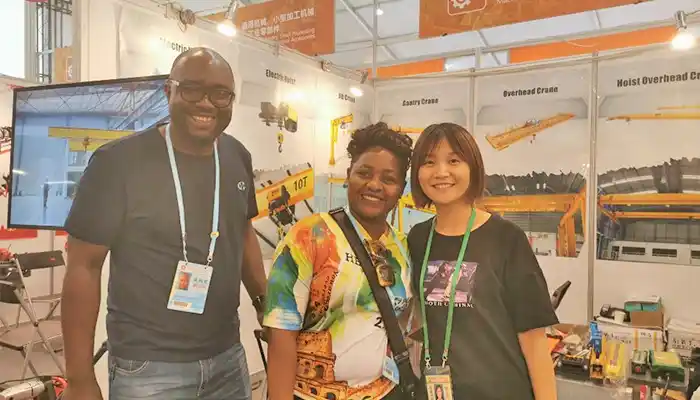 yuantai crane is your reliable supplier
yuantai crane is your reliable supplier
The Strategic Role of Procurement Managers in Overhead Crane Procurement
Procurement managers are more than just buyers—they’re the bridge between operational needs and strategic sourcing. When it comes to overhead cranes, their role is vital in ensuring that the right equipment is sourced at the right price, with long-term reliability in mind. But there’s more to crane procurement than just the initial cost. Here’s how procurement managers can navigate this process to get the most value.
Understanding Total Cost of Ownership (TCO) vs. Initial Procurement Costs
While it’s tempting to focus on the upfront cost when purchasing cranes, savvy procurement managers know that the real cost of owning a crane goes far beyond the initial purchase price. This is where the concept of Total Cost of Ownership (TCO) comes into play.
Initial Procurement Costs: This is the price you pay to acquire the crane, which includes the crane’s base price, installation costs, and initial setup.
Total Cost of Ownership (TCO): This includes not only the upfront costs but also the long-term expenses related to:
- Maintenance and Repairs: Regular service, spare parts, and unplanned downtime can add up over time.
- Energy Consumption: Overhead cranes can consume a significant amount of energy, so efficiency plays a big role in long-term costs.
- Operational Lifespan: A reliable crane supplier who offers strong after-sales support and durable equipment can extend the crane’s useful life, saving money over time.
By understanding TCO, procurement managers can make smarter decisions. A crane with a lower initial cost might be more expensive in the long run if it requires more maintenance or is less energy-efficient. It’s essential to consider the bigger picture when choosing a supplier.
The Value of Building Long-Term Relationships with Overhead Crane Suppliers
Sourcing cranes isn’t a one-off task—it’s an ongoing process. Long-term relationships with suppliers can directly benefit procurement managers by aligning crane purchasing decisions with the company’s broader operational goals. Here’s why this matters:
- Consistency and Reliability: When you work with the same overhead crane supplier over time, you build a sense of trust. The supplier becomes more familiar with your specific needs, ensuring that you get the right crane every time. No surprises, no rushed decisions.
- Better Alignment with Operational Goals: As your business grows or changes, your operational needs might evolve. Having a long-term relationship with a supplier ensures that your cranes evolve with you. Whether it’s upgrading to higher-capacity models or adjusting to new technology, your supplier will understand your vision and help make those transitions smoother.
- Reduced Risk: By relying on a supplier who knows your operations inside and out, you reduce the risk of costly mistakes. They can advise on the best crane types, configurations, and layouts to optimize your facility, helping you avoid potential issues down the road.
Building that trust over time is an investment that pays off, especially in high-stakes environments like steel mills, construction, and manufacturing, where uptime is critical.
How Procurement Managers Can Secure Better Terms, Service, and Custom Solutions
Procurement managers who engage in long-term partnerships with overhead crane suppliers can secure favorable terms that simply aren’t available through one-time purchases. Here’s how these partnerships lead to better outcomes:
- Negotiated Pricing and Discounts: Suppliers are more likely to offer volume-based discounts, special pricing, and more competitive rates for loyal customers. Over time, as the volume of business increases, suppliers are motivated to offer better pricing to keep you as a customer.
- Customized Solutions: A good crane supplier will take the time to understand your unique challenges. This allows them to offer customized crane solutions that fit your specific operational needs. Whether it’s customizing the lifting capacity, span, or even the crane’s design, a long-term relationship opens the door to tailored solutions that maximize productivity and minimize downtime.
- Priority Support and Faster Response Times: One of the significant advantages of a strategic partnership is the priority support you’ll receive when issues arise. When a crane malfunctions or needs urgent service, suppliers are more likely to prioritize clients they’ve worked with for years. This means faster response times, quicker repairs, and reduced downtime.
- Flexibility in Terms and Conditions: Long-term partnerships offer more room to negotiate flexible terms, whether it’s extended warranties, service agreements, or financing options. Suppliers value long-term clients and are more willing to offer flexible terms to ensure continued business.
By focusing on building a long-term relationship with an overhead crane supplier, procurement managers can access more favorable contract terms and personalized support, which leads to better value and more efficient operations.
In summary, procurement managers who understand the full picture of crane costs—considering both the initial price and the Total Cost of Ownership—are better positioned to make strategic, long-term decisions. Building a lasting relationship with a trusted overhead crane supplier offers significant benefits, including cost savings, customization options, priority service, and peace of mind knowing that their cranes will be well-supported over time.
Why Long-Term Partnerships with Crane Suppliers Outperform One-Off Purchases
When it comes to sourcing cranes, procurement managers often face the decision of whether to make a one-off purchase or enter into a long-term partnership with a supplier. While one-off transactions might seem like the easy route, they come with several disadvantages that can affect the long-term success of your operations. Let’s dive into why building a lasting relationship with a crane supplier is a much smarter choice.
The Disadvantages of Transactional Buying
Transactional buying, where a procurement manager makes a single, one-time purchase, may seem simple, but it can lead to several issues that are costly in the long run:
- Pricing Volatility: With one-off purchases, the price you pay for a crane is often subject to market fluctuations. If materials prices go up or if the supplier’s costs increase, you’ll feel the impact directly. You have little leverage to negotiate better pricing, as the supplier has no ongoing commitment to you.
- Inconsistent Service: One-time buyers don’t receive the same level of attention as long-term partners. Inconsistent service is often the result—such as slower response times for repairs, lack of available spare parts, or a less personalized experience. When issues arise, you may not have the supplier's full support because they don’t have a long-term interest in your success.
- Unfamiliarity with Specific Crane Needs: Each facility has unique crane requirements, but suppliers can’t understand these specific needs unless they have an ongoing relationship with the client. If you’re buying from a supplier for the first time, they may not fully grasp your operational challenges or provide solutions that are tailored to your specific crane requirements. This could lead to costly mistakes or inefficiencies.
In short, one-off purchases come with a lot of unpredictability and risk. A transactional relationship with a crane supplier often lacks the reliability and depth needed to ensure the success of long-term operations.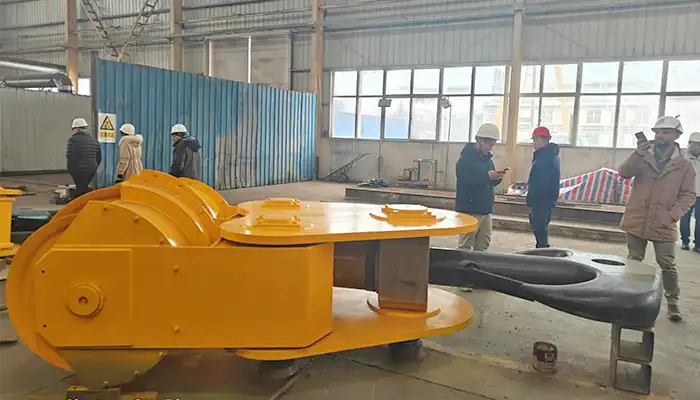
How a Long-Term Relationship with a Crane Supplier Leads to Shared Investment in Operational Success
Building a long-term relationship with your crane supplier means both parties are invested in each other’s success. It’s no longer just a one-time transaction—it’s about working together to achieve mutual goals over time. Here's why this is valuable:
- Shared Commitment to Success: When you develop a partnership with a crane supplier, they become more invested in your business. Your success directly impacts their business, so they are motivated to ensure that their products and services align with your operational needs. This means better service, better pricing, and overall better equipment to keep your operations running smoothly.
- Strategic Guidance and Expertise: A long-term supplier relationship allows you to tap into the supplier’s industry knowledge and expertise. Your supplier can offer guidance on how to optimize your crane operations, including advice on maintenance schedules, upgrades, and new technologies. Their ongoing support means you’re not just buying equipment; you’re gaining a partner who helps you plan for the future.
- Flexibility and Adaptation to Changes: As your business evolves, your crane needs may change. Long-term suppliers are in a position to adapt to these changes and provide the right solutions. Whether it's scaling up production, handling heavier loads, or upgrading to newer technology, a trusted partner is more likely to offer flexible solutions tailored to your evolving needs.
Benefits of an Ongoing Partnership with an Overhead Crane Supplier
A long-term partnership with an overhead crane supplier offers clear advantages, especially when it comes to ensuring your equipment performs at its best over the years:
- Improved Efficiency: With a reliable crane supplier, you can optimize your operations. They know your needs, your facility, and your equipment, which helps them offer solutions that improve crane uptime and productivity. They can also provide preventative maintenance that keeps everything running smoothly and reduces unplanned downtime.
- Better Equipment Reliability: Suppliers who have a deep understanding of your equipment and needs are better equipped to provide the right parts, upgrades, and services. This ensures that your cranes are not only reliable but also fully aligned with your long-term goals. Their proactive support helps you avoid costly breakdowns and delays.
- Streamlined Maintenance and Support: Long-term partners know your cranes inside and out. They can provide fast, reliable maintenance services, ensuring that any issues are dealt with quickly and efficiently. With a supplier that understands your equipment's history and needs, repairs and replacements are more likely to be done right the first time, keeping your cranes running at peak performance.
- Custom Solutions and Upgrades: Over time, your crane supplier can offer customized solutions based on your specific operational needs. Whether it’s modifying a crane for higher lifting capacity, adding automation, or upgrading software, your supplier will be in a better position to understand how to make these changes seamlessly, enhancing your equipment’s capabilities without the growing pains of working with a new, unfamiliar supplier.
In conclusion, long-term partnerships with crane suppliers are more than just about saving money on purchases—they are about building a reliable, efficient, and responsive relationship that benefits both parties. By shifting away from transactional buying, procurement managers can unlock operational advantages that lead to greater equipment performance, cost savings, and strategic growth.
Key Benefits Procurement Managers Can Unlock from Overhead Crane Supplier Partnerships
Building a long-term partnership with an overhead crane supplier isn’t just about purchasing equipment. It’s about unlocking a variety of benefits that can streamline your operations, reduce costs, and improve service quality. Let's explore some of the key advantages procurement managers can gain through a strong relationship with their crane suppliers.
Better Service and Technical Support
A long-term partnership with a trusted crane supplier offers access to top-tier service and technical support that goes far beyond a simple purchase.
- Access to Dedicated Support Teams: When you work with a long-term crane supplier, they get to know your specific crane models and operational needs. This leads to more personalized support. Instead of starting from scratch with every service request, you’ll have a dedicated support team familiar with your equipment, making troubleshooting quicker and more effective.
- Faster Response Times for Maintenance and Troubleshooting: A strong supplier relationship means your issues won’t get lost in the shuffle. When you experience a breakdown or need troubleshooting, your supplier will prioritize your request. This reduces downtime, which is crucial in industries like manufacturing and steel mills where even a few hours of downtime can be costly.
- Priority Access to New Crane Technologies, Upgrades, and Software: Suppliers value their long-term clients and are more likely to offer them first access to the latest crane technologies, software updates, and hardware upgrades. Whether it’s adopting automation features, improving energy efficiency, or integrating the latest safety technologies, your supplier will help you stay ahead of the curve.
Consistent and Competitive Pricing
One of the most tangible benefits of building a long-term relationship with an overhead crane supplier is the potential for significant cost savings.
- Volume-Based Discounts and Long-Term Contract Pricing: When you purchase cranes or crane services on a recurring basis, suppliers are more inclined to offer volume-based discounts. For example, if your company requires multiple cranes over several years or you have a large-scale operation, your supplier can offer better pricing for the bulk purchase or long-term commitment.
- Protection from Price Hikes: Materials and market conditions often fluctuate, causing prices to rise. However, by locking in long-term agreements, procurement managers can protect their companies from sudden price hikes. Having set pricing terms for several years gives you a predictable cost structure and peace of mind, knowing that your operational budget won’t be disrupted by unexpected increases in crane costs.
- Preferred Rates for Accessories, Replacement Parts, and Service Contracts: With a supplier you’ve built a relationship with, you’re more likely to secure preferred rates on replacement parts, accessories, and even service contracts. Suppliers want to keep their long-term customers satisfied and will often offer exclusive pricing on essential components, ensuring that you can maintain your cranes without worrying about high repair costs.
Priority Scheduling and Faster Delivery
When the clock is ticking and you need equipment or services in a timely manner, a long-term partnership with an overhead crane supplier can help ensure that you get the priority you deserve.
- Priority Access to Crane Components and Spare Parts: For crane owners, availability of spare parts and components is critical. A long-term relationship means you’ll have priority access to these essential materials. If you need a specific part quickly, your supplier will prioritize your order, reducing the time your cranes are out of service due to unavailable parts.
- Reduced Delivery Times and Faster Shipping: With a strong partnership, delivery times for new cranes and spare parts can be expedited. Suppliers will prioritize orders from loyal customers, helping to ensure that you receive what you need quickly and without delay. This is especially important if you are operating in a high-demand environment where every minute of downtime matters.
- Expedited Maintenance and Service Scheduling: Maintenance scheduling can often become a challenge when service teams are stretched thin. However, with a long-term relationship, you’ll get priority scheduling for routine or emergency maintenance. Whether it’s an urgent repair or an important installation, your supplier will fast-track your service request, ensuring minimal disruption to your operations.
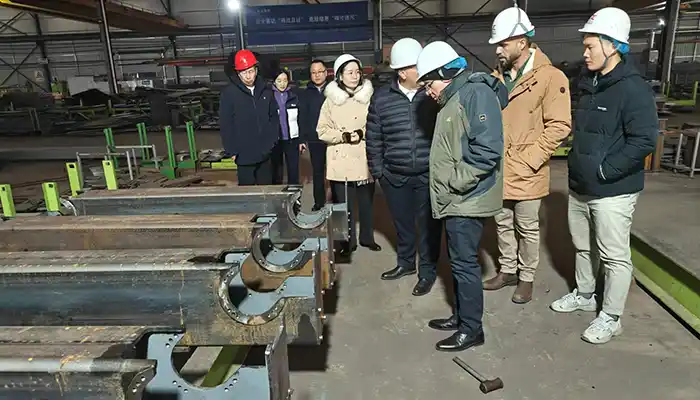
Customization and Engineering Support
Every facility has its own unique requirements. A one-size-fits-all crane may not always be the most effective solution. Here’s where long-term partnerships can provide crucial value in terms of customization and engineering support.
- Collaboration for Tailored Crane Solutions: Working with a trusted supplier allows for more in-depth collaboration. You and your supplier can discuss specific requirements for your operations, such as unique lifting capacities, span lengths, or specific safety features. Over time, your supplier will become a true partner in designing cranes that perfectly align with your facility’s needs, offering tailored solutions that improve your operational efficiency.
- Access to Engineering Support for Custom Designs: Whether it’s modifying a standard crane or designing a completely new system, your supplier’s engineering team will work closely with you to make it happen. This could involve adapting the crane to your facility’s layout, incorporating specialized features, or ensuring compliance with industry standards. The ability to tap into expert engineering resources ensures that your equipment is built to meet your precise operational requirements.
- Understanding of Evolving Operational Demands: As your operations evolve, so too will your crane requirements. Whether you expand your facility, increase your production capacity, or shift to new technologies, your crane supplier will have a better understanding of your evolving needs. Over time, they can help adjust and adapt your crane solutions to fit these changes, ensuring your equipment remains relevant and efficient.
Long-term partnerships with overhead crane suppliers offer numerous benefits that go beyond just securing the best price. From faster response times to customization support and priority access to new technologies, procurement managers who engage in such partnerships are better positioned to improve operational efficiency, reduce costs, and ensure a higher level of service. By fostering these relationships, businesses can ensure that their crane operations are always optimized, keeping production running smoothly and effectively.
How to Build and Sustain a Strong Relationship with Your Overhead Crane Supplier
Building and maintaining a strong, long-term relationship with your overhead crane supplier is crucial for optimizing the performance of your crane fleet and ensuring seamless operations. A well-established partnership can lead to better service, cost savings, and reliability over time. Here’s how you can build and sustain such a relationship.
Choosing the Right Overhead Crane Supplier
Choosing the right supplier is the first step in ensuring that your partnership is successful. It's more than just picking the cheapest option; it's about selecting a supplier that aligns with your operational needs and values.
- Evaluate Beyond Price: While pricing is important, it should not be your only consideration. Look for suppliers who offer reliable service, quick response times, and have a proven track record. Reliability means they can meet deadlines and provide consistent quality over time.
- Check for Certifications: Ensure your crane supplier holds relevant certifications like ISO and CE, which demonstrate their commitment to quality and safety standards. These certifications not only ensure the quality of the cranes but also give you confidence in their compliance with international safety regulations.
- Proven Track Record in Your Industry: Choose a supplier that has experience serving businesses in your industry. For example, if you're in the steel mill or construction industry, select a supplier who has delivered cranes for similar operational needs. Industry experience ensures they understand the challenges you face and can offer more tailored solutions.
Structuring a Mutually Beneficial Agreement
Once you've selected the right supplier, the next step is to formalize the partnership with a mutually beneficial agreement that sets clear expectations and ensures long-term success.
- Set Clear Expectations: Your agreement should clearly define pricing, delivery schedules, after-sales service, and support expectations. A well-drafted contract will make sure both parties understand their responsibilities and what is expected of them.
- Include Performance Reviews and KPIs: Establish performance reviews and key performance indicators (KPIs) that both parties agree on. This could include metrics for crane uptime, maintenance response time, and quality of service. Performance reviews help keep both parties on track and ensure the relationship continues to evolve for the better.
- Long-Term Goals: Include long-term goals in your contract, such as future crane upgrades, customized solutions, or expansion of your fleet. By planning for the future, you can ensure that your supplier is aligned with your business's growth trajectory.
Maintaining Ongoing Engagement
A long-term relationship isn’t just about signing a contract. It’s about maintaining regular communication, engaging in continuous improvement, and adapting to changing needs.
- Regular Performance Reviews and Meetings: Schedule regular meetings and performance reviews with your supplier to evaluate how things are going. Discuss any issues, new challenges, or opportunities for improvement. These reviews help identify potential problems early and address them proactively.
- Provide Operational Feedback: Give your supplier feedback on how the cranes are performing in real-world conditions. Share any challenges you face with crane functionality, reliability, or safety. By providing constructive feedback, you help your supplier improve their service and better meet your needs.
- Share Demand Forecasts and Future Needs: Be proactive about sharing your demand forecasts and future needs with your crane supplier. This allows them to better prepare and offer solutions tailored to your long-term goals. Whether you’re expanding your operations, needing new crane models, or planning for maintenance, keeping your supplier in the loop helps secure better pricing, delivery terms, and overall support.
Building and sustaining a strong relationship with your overhead crane supplier takes time, effort, and commitment. By choosing the right supplier, structuring a mutually beneficial agreement, and maintaining ongoing engagement, you create a foundation for success that benefits both parties. When both you and your crane supplier are aligned on goals, performance expectations, and future needs, you ensure that your crane operations will remain efficient, reliable, and cost-effective in the long run.
Common Pitfalls to Avoid with Overhead Crane Suppliers
When working with overhead crane suppliers, it’s important to be strategic and forward-thinking. While it can be tempting to go for the cheapest option or neglect future needs, these decisions can lead to higher costs and inefficiencies down the line. Here are some common pitfalls procurement managers should avoid when partnering with crane suppliers:
Overlooking Long-Term Benefits in Favor of Cheaper, One-Time Purchases from Less Experienced Suppliers
It’s easy to focus on immediate cost savings, but opting for cheaper, one-time purchases from suppliers with limited experience can be a costly mistake in the long run.
- Why It’s a Pitfall: While you might save money upfront, a less experienced supplier may not be able to provide reliable service, quality, or technical support over time. The cranes might require more frequent repairs, leading to increased downtime, maintenance costs, and inefficiency.
- What to Do Instead: Choose suppliers who offer competitive pricing but also emphasize reliability, service capabilities, and industry experience. Over the long term, these factors will result in fewer problems, less downtime, and a more efficient operation. Investing in quality now can help you avoid costly mistakes in the future.
Failing to Evaluate Supplier Performance and Make Adjustments to Service Contracts as Business Needs Evolve
Your business needs may change over time, and so should your relationship with your crane supplier. Failing to periodically evaluate performance and adjust service contracts can hinder your ability to maintain optimal operations.
- Why It’s a Pitfall: If you don’t assess how well your crane supplier is meeting your needs, you risk missing out on service improvements, cost savings, or new technologies that could benefit your operations. Over time, you may end up paying for services or features you no longer need, or fail to get the upgrades that could improve crane performance.
- What to Do Instead: Regular performance reviews are essential. Have discussions with your supplier to assess whether the current service level aligns with your operational goals. Adjust service contracts as needed to reflect any changes in your business, such as increased demand or the need for specialized crane solutions. Always look for ways to improve and optimize the relationship.
Neglecting to Account for Future Customization, Upgrades, or Scalability When Negotiating Contracts with Crane Suppliers
Many procurement managers focus solely on current needs when negotiating contracts with crane suppliers, failing to plan for future changes in their business.
- Why It’s a Pitfall: Businesses evolve, and the cranes you purchase today may need to be upgraded, customized, or scaled in the future to meet new demands. If your contract doesn’t account for these changes, you may find it difficult (and expensive) to make adjustments later.
- What to Do Instead: Plan ahead by discussing potential upgrades, customizations, and scalability with your crane supplier during contract negotiations. Ensure the agreement includes provisions for future needs, whether that’s adding more cranes, modifying existing ones, or integrating new technologies. A supplier who is open to future customization and flexible to changes will be a valuable long-term partner.
Avoiding these common pitfalls can save you a lot of time, money, and headaches down the road. By focusing on long-term value, regularly evaluating supplier performance, and planning for future needs, you can build a strong, successful relationship with your overhead crane supplier. This proactive approach ensures that your cranes will continue to meet your operational goals efficiently, reliably, and cost-effectively.
Who Should Pay Attention to This Guide
This guide isn’t just for anyone loosely involved with equipment buying. It’s especially useful for professionals directly responsible for making smart, long-term decisions about sourcing overhead cranes and working with crane suppliers. Here’s who should take this seriously:
Procurement Managers in Industries Using Overhead Cranes
If you’re in charge of purchasing or sourcing in sectors that rely heavily on cranes for daily operations, this guide is tailored for you. You’re the key link between operational needs and supplier performance.
Industries that benefit most include:
- Steel Mills & Foundries
Where cranes are essential for handling heavy billets, coils, or molten metal, and reliability and uptime are critical. - Construction & Infrastructure Companies
Often working under tight deadlines and changing site conditions, these teams need dependable supply partnerships and fast turnaround for custom lifting solutions. - Heavy Manufacturing Plants
In environments where cranes run daily, long-term service agreements and quick access to parts matter as much as the crane itself. - Equipment Rental Services
Companies that rent cranes to others need suppliers they can rely on for consistent quality and responsive support, especially for repairs and custom configurations.
Operations and Plant Managers
If you manage a facility where overhead cranes play a vital role, this guide will help you work closely with procurement to select crane suppliers who can provide tailored solutions, adapt to changing operational needs, and reduce downtime through better service and support.
Strategic Sourcing Teams
For sourcing professionals tasked with supplier evaluation and contract negotiation, this guide offers a clear view into how consolidating overhead crane suppliers and focusing on long-term partnerships can lead to better pricing, fewer disruptions, and improved total cost of ownership (TCO).
Anyone involved in selecting, managing, or optimizing overhead crane suppliers—especially in industries where uptime and reliability are mission-critical—should use this guide to avoid common mistakes and unlock better value through long-term partnerships.
Conclusion
- Recap the strategic importance of establishing long-term relationships with overhead crane suppliers to unlock better service, cost savings, and operational efficiency.
- Reinforce the value of moving from a transactional procurement approach to one focused on sustainable supplier partnerships.
- Highlight that savvy procurement managers who build strong relationships with their crane suppliers will be well-positioned to navigate future challenges and secure lasting business success.
Call to Action: Strengthen Your Crane Procurement Strategy Today
If you're a procurement manager, operations leader, or strategic sourcing professional, now is the right time to take a closer look at your relationship with your overhead crane supplier. Are you getting the long-term value, service, and flexibility your operation needs? Or are you stuck in a short-term cycle of reactive purchases?
Reassess Your Current Supplier Relationships
Start by reviewing your current overhead crane suppliers and contracts. Ask yourself a few key questions:
- Are they responsive when issues arise?
- Do they understand your operation well enough to offer tailored solutions?
- Have you secured consistent pricing or are you exposed to unexpected increases?
If you hesitate to answer or see clear gaps, that’s a signal to explore stronger, more reliable partnerships.
Start the Conversation with Your Overhead Crane Supplier
Don’t wait until you’re facing delays, breakdowns, or rising costs. Reach out to your current crane supplier and discuss how you can work together more closely for long-term results.
Topics to explore include:
- Opportunities for volume-based pricing and multi-year agreements
- Support for custom engineering and equipment upgrades
- Service level commitments, including maintenance response time and spare part availability
A supplier who is invested in your success will be open to a more strategic, long-term discussion.
Use a Structured Evaluation Process
To make this easier for you and your team, we’ve created a simple, downloadable checklist to guide your crane supplier evaluation process.
This checklist includes:
- Key criteria to assess potential or current overhead crane suppliers
- Sample questions to ask during contract negotiations
- Metrics to track service performance and support quality
- Common red flags to avoid when choosing a supplier
This tool can help you make more informed and confident decisions when selecting or renewing supplier agreements.
Download the checklist and share it with your team to ensure you’re aligned on long-term goals and priorities.


